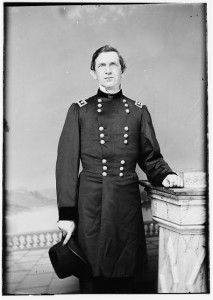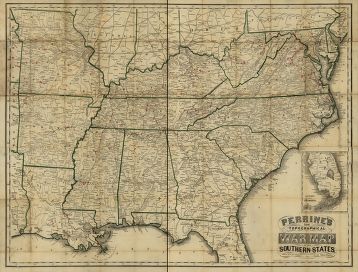Northern Democrats were extremely indignant over the arrest, trial, and sentencing of Clement Vallandigham. As the Lincoln administration worked out what to do with the troublesome Copperhead, Southerners also became indignant. The Confederacy wasn’t about to become a dumping ground for the North’s problems. On the other hand, if Mr. Vallandigham chose to move to the Confederate states, he would be welcomed with southern hospitality.
From The Papers And Writings Of Abraham Lincoln, Volume Six:
ORDERS SENDING C. L. VALLANDIGHAM BEYOND MILITARY LINES.
[Cipher.]
UNITED STATES MILITARY TELEGRAPH, May 10 [19?], 1863. By telegraph from Washington, 9.40 PM, 1863
TO MAJOR-GENERAL BURNSIDE, Commanding Department of Ohio.
SIR:—The President directs that without delay you send C. L. Vallandigham under secure guard to the Headquarters of General Rosecrans, to be put by him beyond our military lines; and in case of his return within our lines, he be arrested and kept in close custody for the term specified in his sentence.
By order of the President: E. R. S. CANBY, Assistant Adjutant-General.
WAR DEPARTMENT, May 20, 1863.
MAJOR-GENERAL A. B. BURNSIDE, Commanding Department of Ohio, Cincinnati, O.
Your despatch of three o’clock this afternoon to the Secretary of War has been received and shown to the President. He thinks the best disposition to be made of Vallandigham is to put him beyond the lines, as directed in the order transmitted to you last evening, and directs that you execute that order by sending him forward under secure guard without delay to General Rosecrans.
By order of the President: ED. R. S. CANBY, Brigadier-General
From the Richmond Daily Dispatch May 20, 1863:
Mr. Vallandigham.
We agree with several of our contemporaries that if Lincoln has decided in reality to commute the sentence of Mr. Vallandigham to banishment to the Southern Confederacy, that he should not be permitted to remain here. The vulgar tyrant of Washington should not be allowed to take such a liberty — to establish a penal colony within our boundary. If, as the Enquirer suggests, Lincoln simply banishes him from Yankeedom and he selects the Southern Confederacy as a place of refuge, the rights of hospitality of course cannot be denied him, and he would be receive[d] with the consideration due to a very distinguished and consistent statesman, who has marked boldness and firmness in criticizing and reproving the usurpations and outrages of the Lincoln Government.
Edward Richard Sprigg Canby was sent back East after defeating a rebel army in New Mexico Territory.


